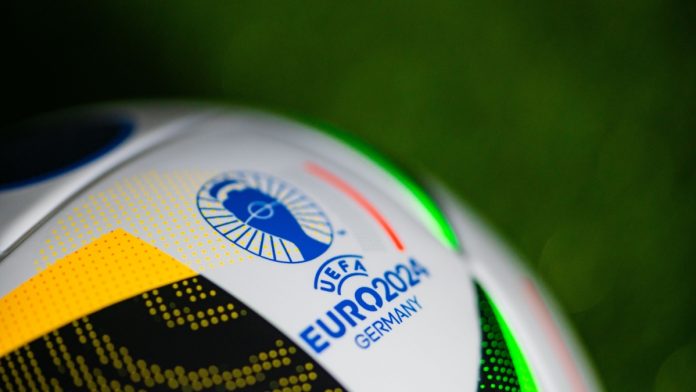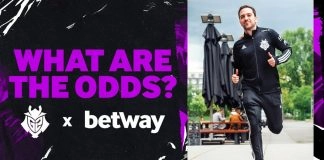As the curtain fell on the 2024 European Championships, betting companies could finally take a moment to relax after over a month of wall-to-wall promotion.
Firms such as Paddy Power, Ladbrokes and Sky Bet all released TV adverts ahead of the tournament and continued to produce content throughout the event. A notable theme throughout these ads was a focus on fans, and on storytelling.
Paddy Power sarcastically celebrated England being “Europe’s favourites” due to the behaviour of England fans on the continent, Ladbrokes called on fans to “bring your wave” and Sky Bet examined the conflict in fans’ minds about supporting a player who plays for their rival club side.
Betting advertising has come under scrutiny in many jurisdictions, particularly regarding practices like bonusing and promotions.. Therefore it is understandable that operators are looking to bring the focus away from promoting a betting product and instead making ads more personal to fans.
Several operators also called on ex-players for their advertisements. Peter Crouch was featured in Paddy Power’s flagship advert, continuing a long-running association with the brand, and AK Bets‘ marketing effort included Emile Heskey trying to recreate Wayne Rooney’s famous overhead kick.
This use of influencers and sportspeople in marketing has also come under question by regulatory authorities across jurisdictions. Canadian legislators recently brought in new rules which restrict the use of athletes and celebrities in igaming advertising to help safeguard children, for example.
Given that regulators are concerned about athletes in promotions, the operator’s use of retired footballers has ensured they steer away from controversy. By using older ex-footballers, operators have been able to ensure that their presence will appeal to older consumers who are of a legal gambling age.
Concerns around betting visibility have not abated, however. Last month, the Football Supporters Association (FSA) released a report that found 73% of football fans feel like they are subjected to a concerning amount of gambling advertising and sponsorship around football.
The FSA’s partnering organisation, GambleAware, released similar data that found 67% of the public have expressed concerns over the amount of gambling advertising and a similar proportion are also worried about the impact the promotional messages have on children.
These figures are understandable given how hard it is to avoid sports betting marketing while watching football. Ad breaks before and during the game feature promotions showcasing the latest odds and hoardings around the pitch at matches are likely to be sponsored by at least one betting brand.
Euro 2024 was also the first UEFA-run international tournament to have an official betting partner.
Earlier this year, Kaizen Gaming and its brand Betano partnered with UEFA and, subsequently, Betano’s branding was displayed on the electric hoardings that surrounded the pitch at games. The company was also a principal partner for the 2022 Qatar World Cup and the recently concluded Copa America.
This development further solidifies how deeply ingrained sports betting advertising is within football. Even the sports governing bodies, who have traditionally steered away from the sector, have chosen to engage with sports betting and actively promote the product.
As well as traditional TV adverts and promotions across social media, many betting companies also produce or sponsor football-focused podcasts.
Case in point, Sky Bet presents The Overlap which features Gary Neville, Ian Wright and Roy Keane while William Hill sponsors No Tippy Tappy Football with ‘Big Sam’ Allardyce.
"Wie geht es dir, mein Schatz?" 🇩🇪@IanWright0 is every England fan waking up in Berlin today 😂🏴@itvfootball | #EURO2024 pic.twitter.com/gXxCeGL3yf
— The Overlap (@WeAreTheOverlap) July 14, 2024
Although the sponsorship is clear on the shows, it is still a more subtle form of advertising given that a betting product is not being directly advertised and is instead in the background.
The demographic of people interested in sports podcasts and sports betting is very similar, which is why it is no surprise that podcasts and other media are featuring more prominently in operator marketing.
GambleAware’s report on sports betting advertising also listed recommendations for new regulations around gambling advertising.
These suggestions included a ban on gambling marketing at sports events, a pre-watershed ban on all broadcast gaming advertising and for all gambling marketing to include independent evidence-led health warnings.
Although these recommendations would reduce sports betting advertising, it raises the question of whether football, and the sports industry as a whole, would be sustainable without the financial injection it receives from bookmakers.
In recent weeks, several Premier League teams have signed sponsorship agreements with operators which will see their logos and branding be present during matchdays.
Similarly, the English Football League (EFL), the three tiers of English professional football below the Premier League, are sponsored by Sky Bet in a deal reportedly worth £73m across five years. On top of this, an estimated two-thirds of EFL sides are sponsored by betting companies.
Speaking to the BBC anonymously in 2021, a chairman of an EFL team explained that betting sponsors offer significantly more money than other companies from other industries which is why they are so prominent in the leagues despite the concerns raised by some sections of fans and by reform advocates.
This suggests that betting sponsorship is key for the survival of lower league sides that often struggle financially, and removing the opportunity for teams to leverage betting sponsorship could present a financial challenge to teams to close the shortfall in revenue.
Overall, the advertising seen during Euro 2024 has simply been an extension of the general trend of sports betting advertising in domestic football.
Television coverage of the event has been peppered with betting adverts while at the games Betano branding joined the roll call of UEFA global partners that were advertised around the grounds.
As scrutiny surrounding advertising increases and so does consumer fatigue, operators have pivoted to using a more subtle approach at times by using ad spots to tell a story and connect with fans rather than overtly promoting betting products.
Despite the will of organisations like GambleAware and FSA, it is unlikely that sports betting advertising will be eliminated from football given the huge financial boost the industry provides to the sport.
Therefore, regulators must work with the industry to strike a balance between restricting advertising and allowing football to benefit from the money that betting operators pay for sponsorship deals.





